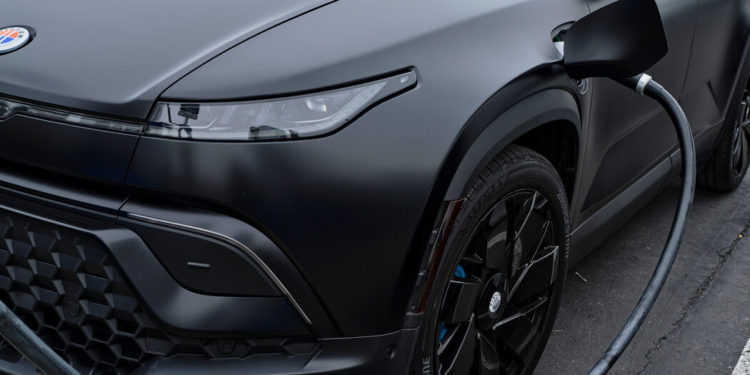Trump Orders to End E.V. Subsidies
President Donald Trump’s announcement to phase out electric vehicle (E.V.) subsidies has ignited widespread debate and opposition. Automakers, environmental activists, and even members of Trump’s own party have raised concerns about the potential economic and environmental impacts of such a move. While some industry leaders cautiously expressed optimism about Trump’s broader focus on strengthening U.S. manufacturing, others warned that repealing federal incentives for E.V.s could stall the momentum toward a greener automotive future.
The Role of E.V. Subsidies in the U.S. Auto Market
Currently, electric vehicle buyers in the United States can benefit from a $7,500 federal tax credit aimed at incentivizing cleaner transportation and reducing greenhouse gas emissions. This credit has played a pivotal role in driving the adoption of E.V.s, with Tesla and General Motors leading the charge in terms of eligible models.
Tesla accounts for nearly half of all E.V. sales in the country, with four of its vehicles qualifying for the tax credit. General Motors (G.M.) surpasses Tesla in eligible models, offering five vehicles that meet the criteria. Other automakers have a limited presence in this space, with no more than two qualifying models per brand.
The potential elimination of this tax break could disrupt the nascent E.V. market. Analysts predict that without subsidies, E.V. sales could decline significantly, making it harder for automakers to achieve economies of scale and compete with traditional gas-powered vehicles.
Automakers React with Mixed Messages
In response to Trump’s announcement, automakers have adopted a cautious tone, balancing optimism about domestic manufacturing with apprehension over the potential loss of subsidies. Stellantis, which owns brands like Dodge, Jeep, and Chrysler, lauded Trump’s focus on strengthening U.S. manufacturing, calling it a “hugely positive” step.
Mary T. Barra, CEO of General Motors, extended congratulations to Trump via X (formerly Twitter) and expressed eagerness to collaborate on maintaining a strong U.S. automotive industry. However, she stopped short of addressing the direct implications of eliminating E.V. incentives.
Tesla, the most prominent player in the E.V. market, has been notably silent. While Elon Musk has previously stated that subsidies should be eliminated across the board, industry analysts believe Tesla’s sales and profits could take a substantial hit if the tax credits are removed.
Elon Musk, the CEO of Tesla and SpaceX, is in a unique position as both a beneficiary of E.V. subsidies and a key figure in Trump’s administration. As the head of the newly formed Department of Government Efficiency, Musk has significant influence over policy decisions. However, there has been no indication that Musk is leveraging his position to protect E.V. incentives.
During a speech in Washington on Monday, Musk celebrated Trump’s commitment to space exploration, including a promise to send astronauts to Mars. “Can you imagine how awesome it will be to have astronauts plant the flag on another planet for the first time?” Musk said, steering clear of any mention of E.V. policies.
Critics argue that Musk’s silence on the issue reflects a conflict of interest. While Musk has publicly stated that Tesla could weather the elimination of subsidies better than its competitors, analysts warn that Tesla’s bottom line would still be significantly affected.
Environmental activists have vowed to challenge Trump’s order in court, arguing that rolling back E.V. subsidies undermines efforts to combat climate change. They also contend that the move contradicts existing federal commitments to reducing greenhouse gas emissions.
“Cutting incentives for electric vehicles is a step backward in the fight against climate change,” said Sarah Bennett, an attorney with the Natural Resources Defense Council. “We’re prepared to take legal action to ensure that federal policies support, rather than hinder, progress toward a cleaner future.”
Legal experts have also questioned the feasibility of Trump’s proposal. They argue that certain provisions, such as California’s clean-air waiver, are deeply entrenched in federal law and unlikely to survive legal challenges. California’s waiver allows the state to set stricter emissions standards than the federal government, effectively driving national E.V. adoption.
Trump’s proposal has exposed divisions within the Republican Party. While some conservatives support the rollback of subsidies as a way to reduce government spending, others are concerned about the economic implications for the auto industry. Key manufacturing states like Michigan and Ohio, which are home to major automakers, could face significant job losses if E.V. production slows.
Several Republican lawmakers have already signaled their intention to oppose the measure, citing the importance of maintaining the U.S.’s competitive edge in the global E.V. market.
The elimination of E.V. subsidies could have far-reaching consequences for the automotive industry. Without tax credits, consumers may be less inclined to invest in electric vehicles, which often come with higher upfront costs compared to their gas-powered counterparts. This, in turn, could slow innovation and hamper the transition to cleaner energy sources.
For automakers like Tesla and G.M., the stakes are particularly high. While these companies have made significant investments in E.V. technology, they still rely on federal incentives to maintain competitive pricing and attract buyers.
President Trump’s order to end E.V. subsidies has set the stage for a contentious battle involving automakers, environmentalists, and policymakers. While the administration argues that the move will strengthen domestic manufacturing, critics warn that it could derail progress toward a sustainable automotive future.
As legal challenges and political debates unfold, the fate of E.V. incentives remains uncertain. What is clear, however, is that the decision will have lasting implications for the U.S. auto industry, the environment, and the global transition to clean energy.


Comments are closed.